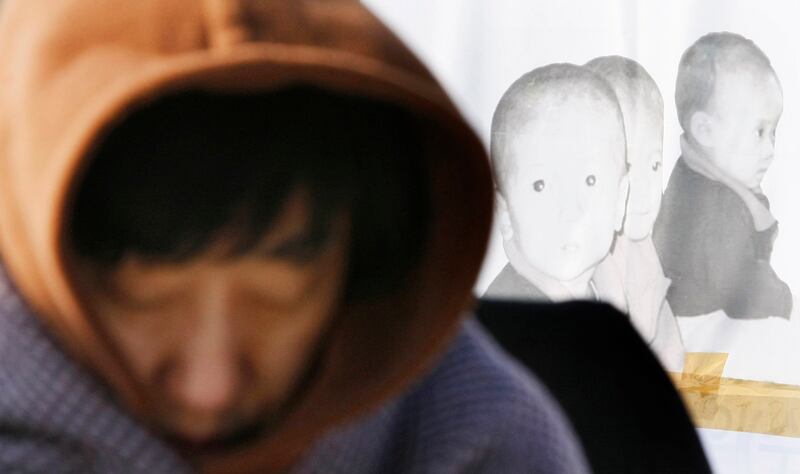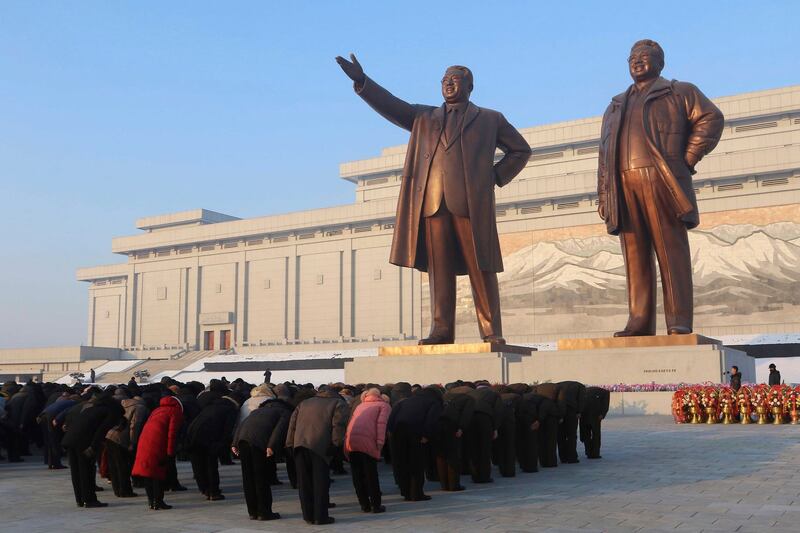Just as they had every Sunday at 5 a.m., the five Christians gathered at the farmhouse for prayer and Bible study. But this time the police were waiting for them.
Tipped off by an informant, authorities arrested the believers on charges of believing in God, a crime in a country where all religion is illegal – except for the reverence everyone is required to show for the country’s leader Kim Jong Un, and its past leaders, his father and grandfather.
Sources told Radio Free Asia’s Korean Service that the Christians, arrested on April 30, are relatives who met weekly at the farmhouse in Tongam village, outside Sunchon city in South Pyongan province, in central North Korea.
“At the site of the worship service, the police retrieved dozens of Bible booklets and arrested all in attendance,” a resident of the province told RFA on condition of anonymity for security reasons.
She said that an informant tipped off the police about the secret Sunday morning gathering.

News of the raid spread quickly throughout Sunchon, another resident who witnessed the arrest told RFA.
“They were praying and reading the Bible together,” she said. “They got together with their relatives and [prayed] ‘Oh Jesus, Lord Jesus … ,’ like that. And then they got arrested.”
If the past is any indication, the believers will be sent to labor camps to serve time. RFA was not able to confirm their status after the raid.
Christian roots
It was not the first time that authorities had rounded up Christians in Tongam.
Underground churches in the village were raided in 2005 and 1997, and the believers were sent to do hard labor in concentration camps.
Tongam has a history with Christianity. It was once the site of a large church building that stood even after the Japanese occupied the Korean peninsula in 1905 and made Shinto the state religion.
“That church was at the foot of the mountain in Tongam village,” the second resident said. “I knew about it because my mother told me it was where the missionaries had been before liberation [from Japanese rule in 1945].”
Sunchon had two Catholic and 31 Protestant churches before the Peninsula was freed from Japanese rule, according to a pastor with experience leading missions in North Korea.

The Soviet-controlled northern half of Korea after 1945 adhered to the idea that religion was the opium of the masses, and therefore promoted atheism. When North Korea was established in 1948, all religions became illegal. It was then that many of the churches in Sunchon began to disappear, and believers in Tongam had to go underground.
North Korea is known to execute, torture and physically abuse individuals for their religious activities, the U.S. State Department’s 2022 International Religious Freedom Report said.
It is one of 17 countries identified to be involved in or condoning systematic, continuous and serious violations of freedom of religion and belief, according to the U.S. Commission on International Religious Freedom’s 2023 annual report.
Bibles and other religious materials are typically smuggled into the country over the Chinese border, where they are distributed to underground churches through a secret network, the second source said.
Despite pressure from authorities, the five captured Christians have refused to renounce their religion, she said.
“A staff member of the judicial agency told us that the [believers] refused to tell where they got their Bibles and said, ‘All for Jesus, even in death.’”
Translated Claire Shinyoung Oh Lee. Edited by Eugene Whong and Malcolm Foster.
